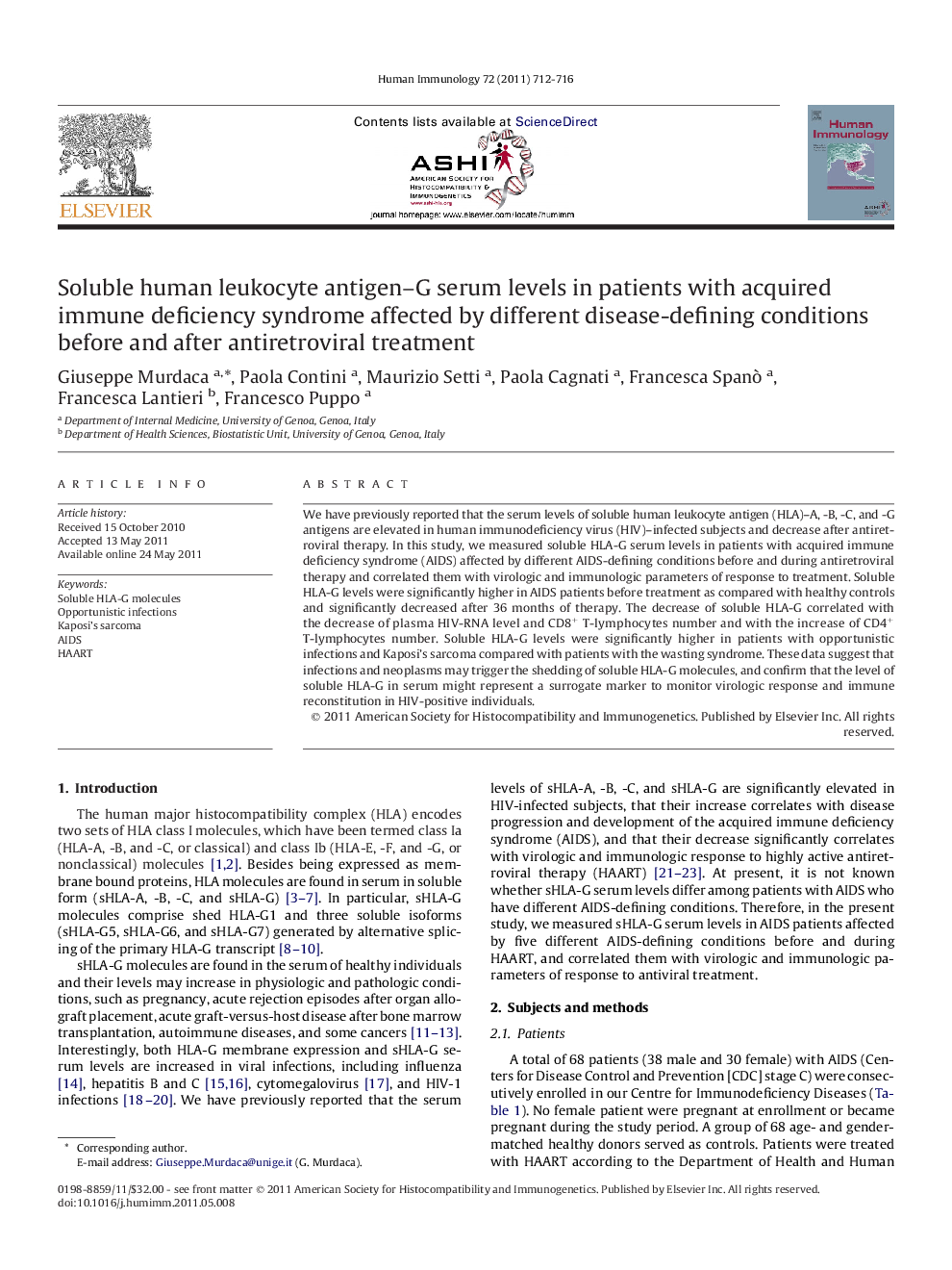| Article ID | Journal | Published Year | Pages | File Type |
|---|---|---|---|---|
| 3350344 | Human Immunology | 2011 | 5 Pages |
We have previously reported that the serum levels of soluble human leukocyte antigen (HLA)–A, -B, -C, and -G antigens are elevated in human immunodeficiency virus (HIV)–infected subjects and decrease after antiretroviral therapy. In this study, we measured soluble HLA-G serum levels in patients with acquired immune deficiency syndrome (AIDS) affected by different AIDS-defining conditions before and during antiretroviral therapy and correlated them with virologic and immunologic parameters of response to treatment. Soluble HLA-G levels were significantly higher in AIDS patients before treatment as compared with healthy controls and significantly decreased after 36 months of therapy. The decrease of soluble HLA-G correlated with the decrease of plasma HIV-RNA level and CD8+ T-lymphocytes number and with the increase of CD4+ T-lymphocytes number. Soluble HLA-G levels were significantly higher in patients with opportunistic infections and Kaposi's sarcoma compared with patients with the wasting syndrome. These data suggest that infections and neoplasms may trigger the shedding of soluble HLA-G molecules, and confirm that the level of soluble HLA-G in serum might represent a surrogate marker to monitor virologic response and immune reconstitution in HIV-positive individuals.
